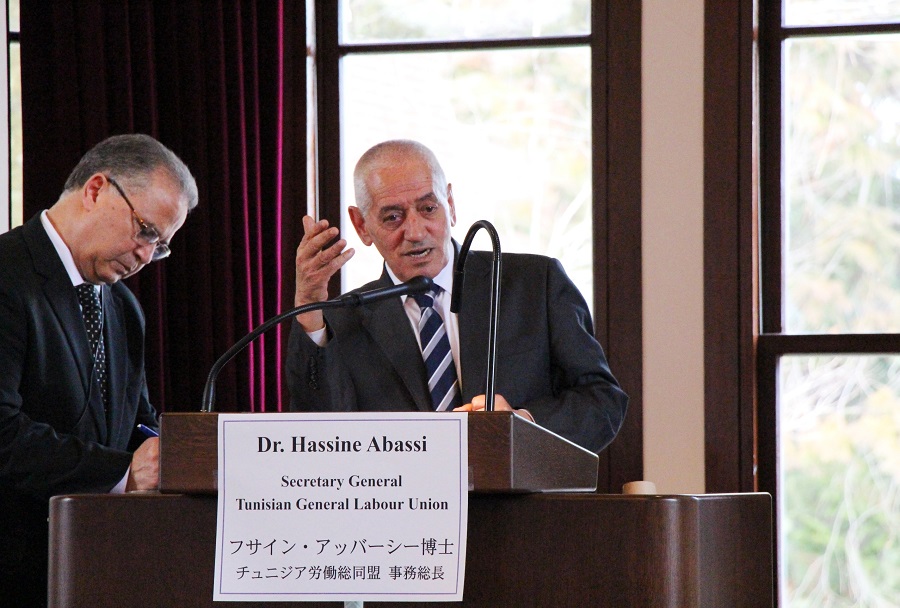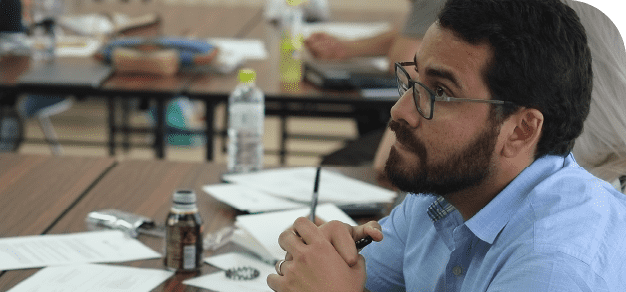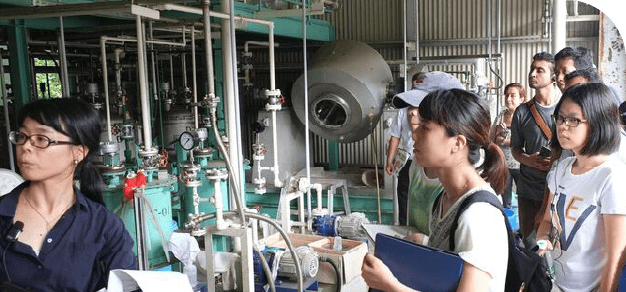Recent Activities
Special Lecture by Novel Peace Prize Winner, Tunisian National Dialogue Quartet
2017/02/24
Global Leadership Forum
Date: February 24 (Friday), 2017 13:00-14:30
Venue: Clarke Memorial Hall (2nd floor), Imadegawa Campus, Doshisha University
Speaker: Dr. Hassine Abassi (Secretary General, Tunisian General Labour Union/Tunisian National Dialogue Quartet)
Theme: Fragile Peace and Democratic Transition: Tunisia's Challenges and Hopes
Moderator: Prof. Masanori Naito (Graduate School of Global Studies)
We were honored to welcome a special speaker, Dr. Hassine Abassi who leads the Tunisian National Dialogue Quartet. The Quartet was awarded the 2015 Nobel Peace Prize for its decisive contribution to the building of a pluralistic democracy in Tunisia. They have been promoting peaceful dialogue between the political parties and Islamic forces. This case could be rays of hope for people in hard situation under a conflict or oppression, and besides an opportunity for students to learn global leadership for the world peace.
During the speech, Dr. Abassi talked about the activities of Tunisian General Labour Union and Tunisian National Dialogue Quartet during the democtatization process in Tunisia.
The Q&A session was held after the speech and Dr. Abassi answered questions posed from the students participated in a gracious way.
Thank you very much for all participants!
*On the same day, Dr. Abassi has received a honorary degree from Doshisha University.
****************************************
(Graduate School of Science and Engineering, M1 / GRM Candidate)
In February 24th, the GRM Global Leadership Forum was held at Doshisha University. The main speaker was Mr. Hassine Abassi, who leads the “Tunisian National Dialogue Quartet”, which was awarded the 2015 Nobel Peace Prize for its decisive contribution to the building of a pluralistic democracy in Tunisia. The quartet has been playing a major role in promoting peaceful dialogue between political parties in the country. Since it was founded in the summer of 2013, the quartet was central in the attempts to achieve democracy in the wake of the Jasmine Revolution of 2011. Mr. Abassi’s speech included a brief overview of the Tunisian experience in the democratic transition, and the positive and strong impact the presence of civil society organizations can have on the national liberation movement. He has also explained the difficult path the quartet went through and how they achieved freedom, social justice, and employment to the people.
During the question and answer session, Dr. Abassi was asked how to create a common value between political parties, especially during the conflict intensification, and whether the quartet promotes multicultural entrepreneurship in business to fight poverty and international cooperation in solving the crisis. He was also asked about the idea that achieving democracy was not enough to overcome the crisis rather than the need for an agreement between all parties and nationalities. He was finally asked if he thinks what the quartet achieved in Tunisia would be effective if applied in other conflicted countries and what he thinks are the possible barriers to replicate the quartet success there.
****************************************
Another report
Abdalrahman Mohamed Migdad
(Graduate School of Global Studies, D2 / GRM Student)
page
****************************************




